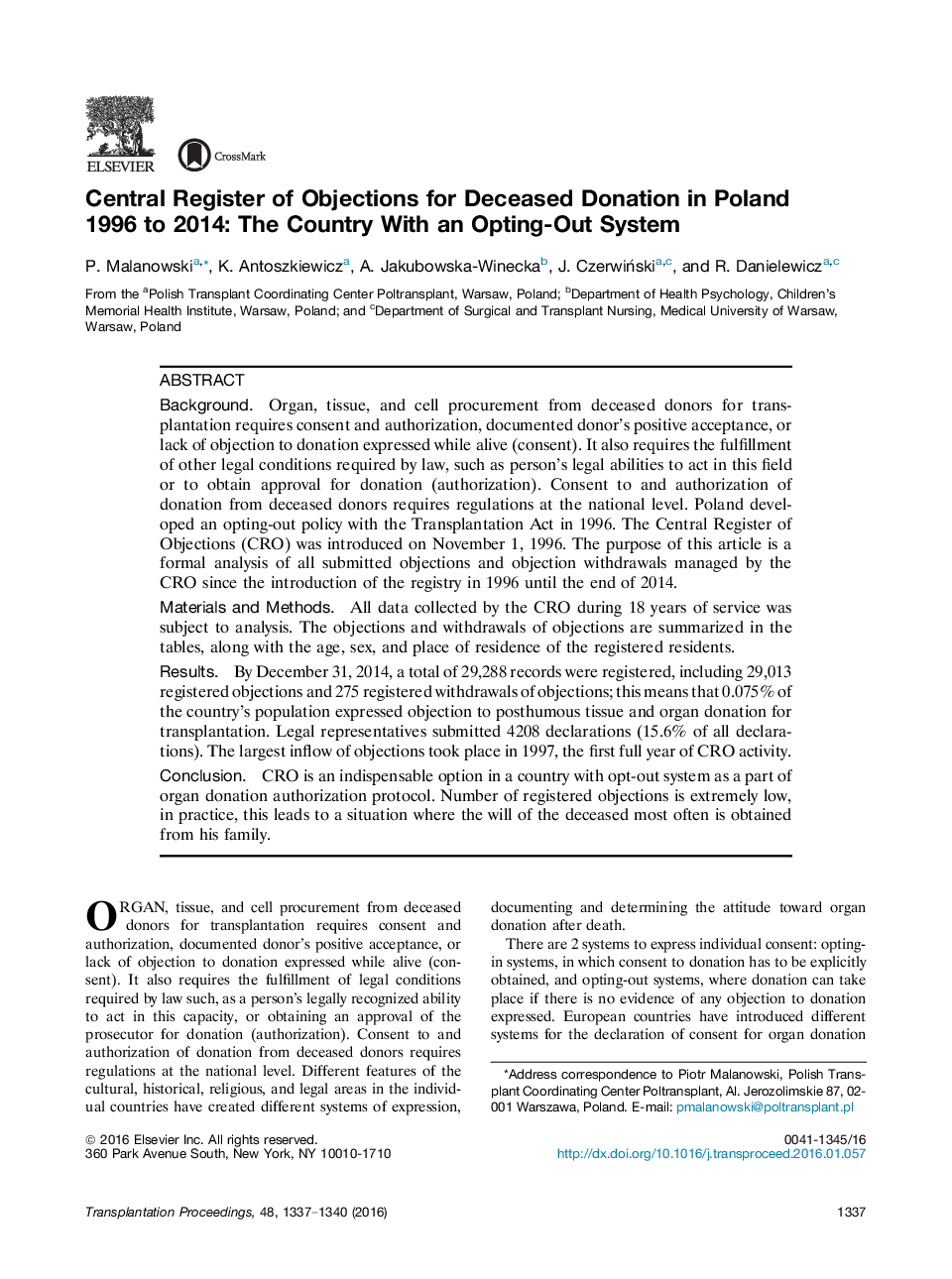| کد مقاله | کد نشریه | سال انتشار | مقاله انگلیسی | نسخه تمام متن |
|---|---|---|---|---|
| 4256026 | 1284510 | 2016 | 4 صفحه PDF | دانلود رایگان |
• Consent and authorization of donation of deceased-donor organs, tissues, and cells are constant elements of the donation process.
• Permission for donation from deceased donors may be refused.
• This article summarizes 18 years of data in the Polish Central Register of Objections.
• Objections to organ retrieval are given in actual numbers and per million population.
BackgroundOrgan, tissue, and cell procurement from deceased donors for transplantation requires consent and authorization, documented donor's positive acceptance, or lack of objection to donation expressed while alive (consent). It also requires the fulfillment of other legal conditions required by law, such as person's legal abilities to act in this field or to obtain approval for donation (authorization). Consent to and authorization of donation from deceased donors requires regulations at the national level. Poland developed an opting-out policy with the Transplantation Act in 1996. The Central Register of Objections (CRO) was introduced on November 1, 1996. The purpose of this article is a formal analysis of all submitted objections and objection withdrawals managed by the CRO since the introduction of the registry in 1996 until the end of 2014.Materials and MethodsAll data collected by the CRO during 18 years of service was subject to analysis. The objections and withdrawals of objections are summarized in the tables, along with the age, sex, and place of residence of the registered residents.ResultsBy December 31, 2014, a total of 29,288 records were registered, including 29,013 registered objections and 275 registered withdrawals of objections; this means that 0.075% of the country's population expressed objection to posthumous tissue and organ donation for transplantation. Legal representatives submitted 4208 declarations (15.6% of all declarations). The largest inflow of objections took place in 1997, the first full year of CRO activity.ConclusionCRO is an indispensable option in a country with opt-out system as a part of organ donation authorization protocol. Number of registered objections is extremely low, in practice, this leads to a situation where the will of the deceased most often is obtained from his family.
Journal: Transplantation Proceedings - Volume 48, Issue 5, June 2016, Pages 1337–1340
